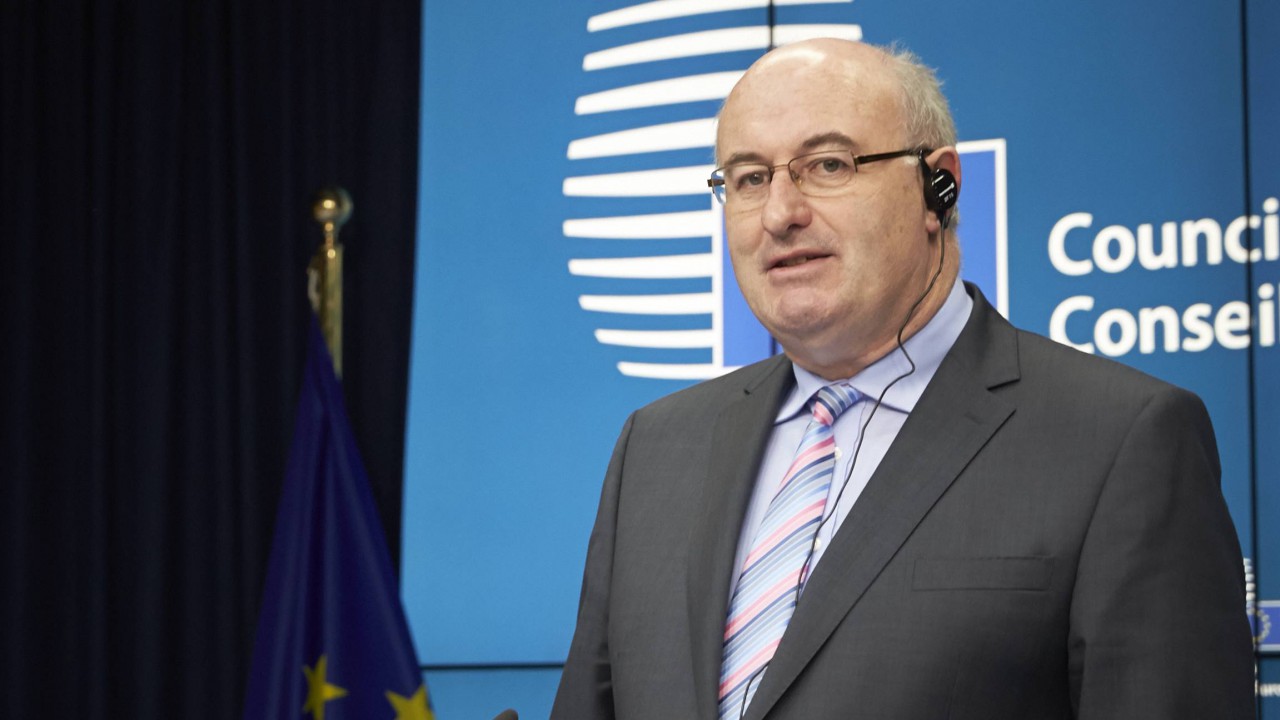The European Commission is looking at how it could incentivise farmers to cut their milk production in order to combat the oversupply on dairy markets, through Article 222 the European Commissioner for Agriculture, Phil Hogan has said.
Later this month, the Commissioner is to announce a new package of measures for the struggling dairy sector and speaking to journalists in Strasbourg this week, the Commissioner said the public intervention system will also have to be looked at in the new package.
“There isn’t any point in incentivising countries to produce more at a time when we have to produce less.
“Ireland is one of the countries who have produced more since the beginning of the year with a significant amount of extra tonnage of milk.
‘I’m told it’s all for third country markets but the evidence is not there judging by the amount we put into intervention.”
Commissioner Hogan also said that the small producers around Europe who have had a dramatic reduction in their income are on the verge of going out of the business.
So, we have to see if there’s enough financial resources that apply to them to keep them in business.
This latest dairy package to combat the crisis in the sector will be the third package since September 2015.
EU Agriculture Ministers hope the package can be financed from existing EU funds but it is understood that a number of Member States indicated that they are willing to use the Crisis Reserve should it be necessary.
Such a move would be politically sensitive in my EU countries as it would involve a reduction in the EU payments of all farmers.
In the last package of measures in March, the Commission announced that it would activate, for a limited period of time, Article 222 – the possibility to enable producer organisations, interbranch organisations and co-operatives in the dairy sector to establish voluntary agreements on their production and supply.
Article 222, from the Common Market Organisation (CMO), is specific to the agricultural sector and can be applied in case of severe imbalance in the market.
This is an exceptional measure, which must also safeguard the EU internal market and was included by the legislators in the 2013 CAP reform but never used before.

